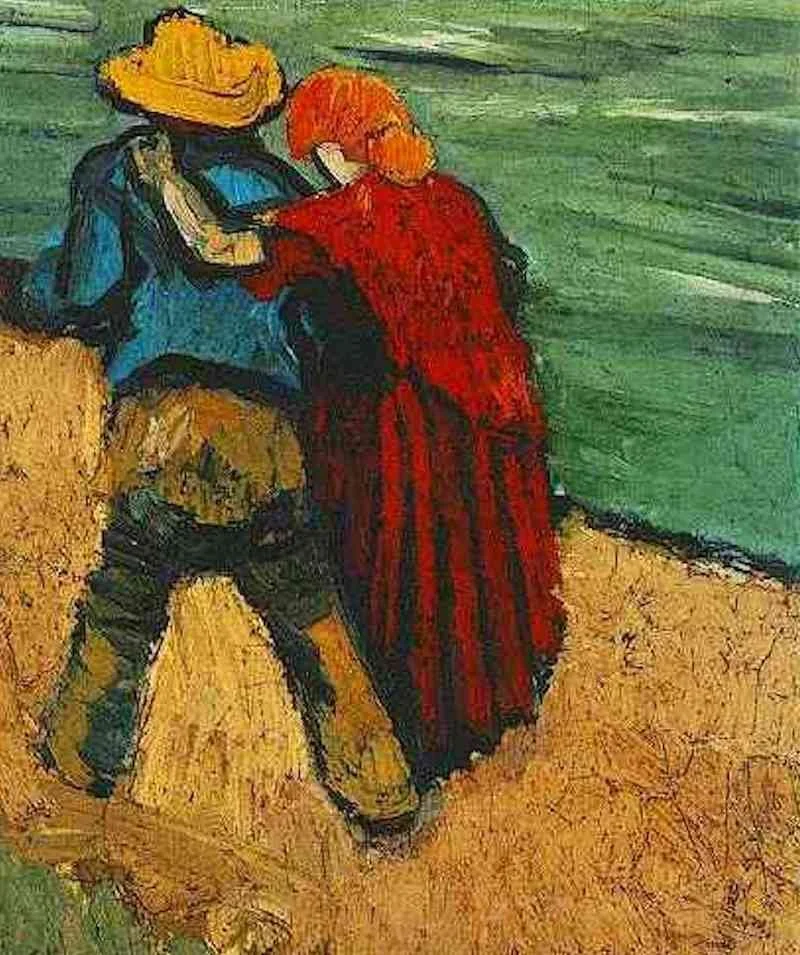The PATH: Friendship, Compassion, and Kindness
sent by J.W. Bertolotti | February 21, 2022
Welcome to The PATH — A weekly reflection with three timeless insights for daily life.
1. Friendship
There is nothing on earth to be prized more than friendship. — Thomas Aquinas
How important is friendship to your path? Are you surprised to hear that the Buddha called good friendship the entire spiritual life? According to Buddhist scripture, One-day Ānanda approached the Buddha and said, “Good friendship and good companionship is half of the spiritual life.”
The Buddha responded,
Not so, Ānanda! Not so, Ānanda! This is the entire spiritual life, Ānanda, that is, good friendship, good companionship, good comradeship. When a monk has a good friend, a good companion, a good comrade, it is to be expected that he will develop and cultivate the Noble Eightfold Path. “And how, Ānanda, does a monk with a good friend, a good companion, a good comrade, develop and cultivate the Noble Eightfold Path? Here, Ānanda, a monk develops right view, which is based upon seclusion, dispassion, and cessation, maturing in release. He develops right intention … right speech … right action … right livelihood … right effort … right mindfulness … right concentration, which is based upon seclusion, dispassion, and cessation, maturing in release. It is in this way, Ānanda, that a monk with a good friend, a good companion, a good comrade, develops and cultivates the Noble Eightfold Path.
Although most people emphasize the importance of friendship, how many connect it to living a virtuous life? The philosopher Aristotle called true friends mirrors to each other and “a single soul dwelling in two bodies.” True friends are a sure refuge; they incite to noble deeds.
Similarly, Seneca put it this way, “Nothing delights the mind as much as friendship.”
——
2. Compassion
If your compassion does not include yourself, it is incomplete. — Buddha
How does one cultivate compassion? Throughout Christian scripture, it is stressed many times, “do not harden your heart” (Hebrews 3:15). But how can we soften our hearts? In The Way to Love, Anthony de Mello advised, “If it is love that you truly desire then set out at once on the task of seeing… As you do, the hard protective shell around your heart will soften and melt and your heart will come alive in sensitivity and responsiveness.”
The notion of seeing clearly connects with philosophical and spiritual wisdom. The philosopher Pierre Hadot wrote in Philosophy as a Way of Life, “Philosophy deepens and transforms habitual perception, forcing us to become aware that we are perceiving the world.”
The astronomer Carl Sagan stressed the need to broaden our perspectives by taking a view from above. In Pale Blue Dot, Sagan wrote,
From this distant vantage point, the Earth might not seem of particular interest. But for us, it’s different. Consider again that dot. That’s here, that’s home, that’s us. On it everyone you love, everyone you know, everyone you ever heard of, every human being who ever was, lived out their lives.
Similarly, my interview with Massimo Pigliucci (author of How to Live a Good Life) revealed a central tenet of Stoicism is the notion of cosmopolitanism. Everyone and everything is in the same boat (planet Earth). We are dependent on each other to make it so that the boat stays afloat and its occupants thrive, explained Pigliucci.
——
3. Kindness
Wherever there is a human being, there is an opportunity for kindness. — Seneca
The ancient Greek playwright Sophocles said, “Kindness gives birth to kindness.” This short saying is one of my favorites. But what if it’s not just kindness? What if any action leads to more of that action?
In Meditations for Lent, the theologian Thomas Aquinas wrote,
Man believes that, once he has committed the sin, he will be able to keep from sin for the future. Experience shows that what really happens is quite otherwise. The effect of that first sin is to weaken the sinner and make him still more inclined to sin. Sin dominates man more and more, and the man left to himself, whatever his powers, places himself in such a state that he cannot rise from it.
A small action or detour from the path gives birth to further action until the way is abandoned altogether. One could think of actions as planting seeds that reproduce themselves.
Similarly, in the Dhammapada, the Buddha warned of small actions adding up. “Let no one think lightly of good, saying in their heart; It will not come nigh unto me. Even by the falling of water-drops, a water-pot is filled; the wise person becomes full of good, even if they gather it little by little.”
The philosopher Jean-Jacques Rousseau once asked, “What wisdom can you find that is greater than kindness?”
——
Thank you for reading; I hope you found something useful. If so, please consider sharing it with others.
Each week, we send a short reflection with three insights to help you live your highest good. If you are not a subscriber to The PATH you can sign up here to receive it right to your inbox.
Image credit: Two Lovers by Vincent Van Gogh (1888)






